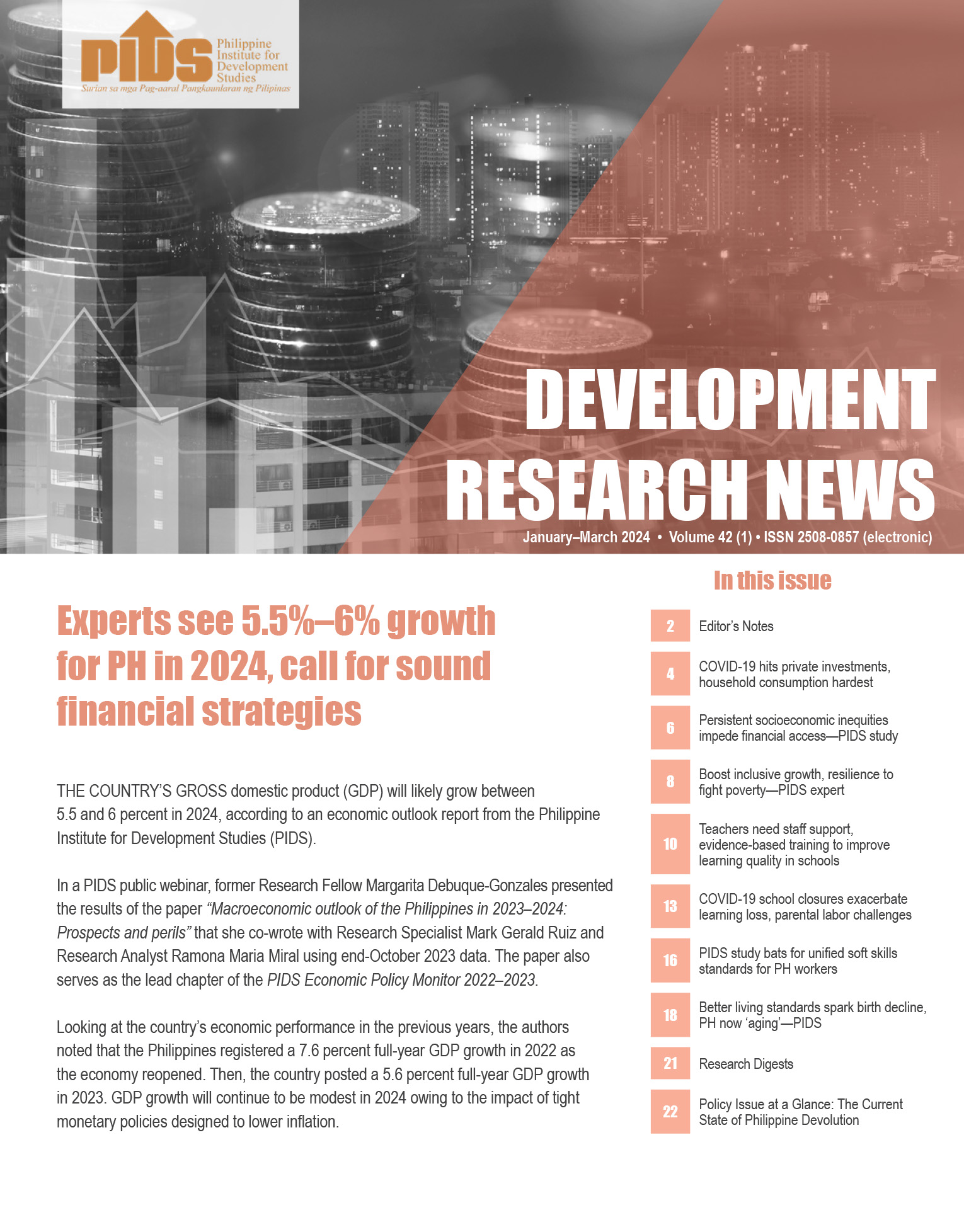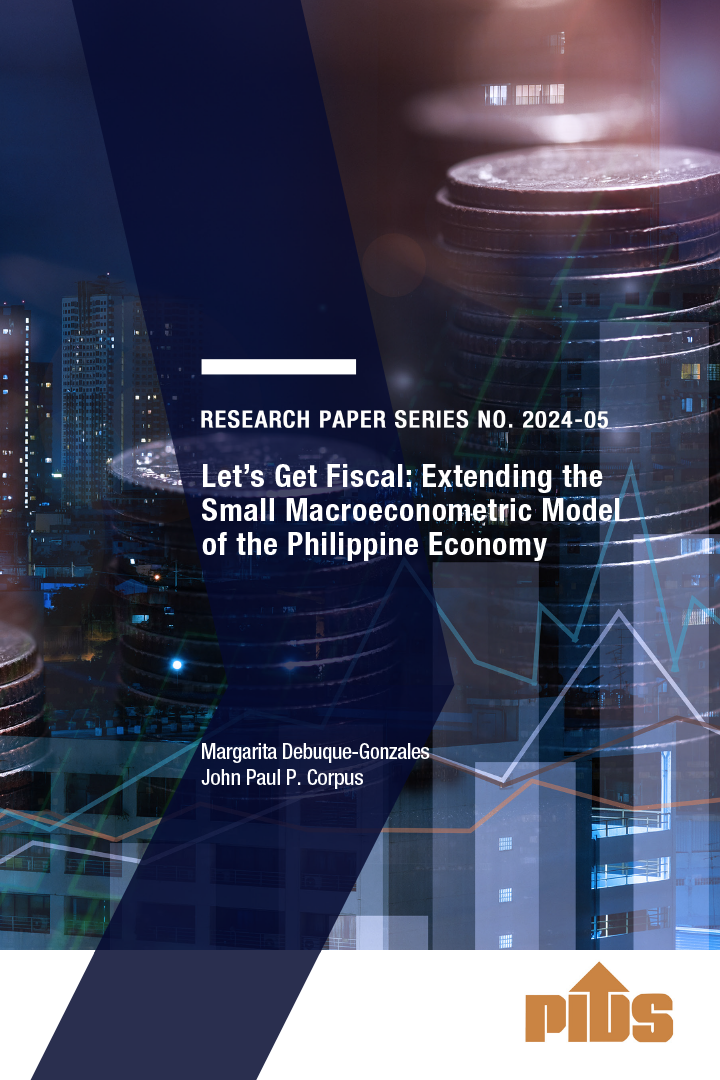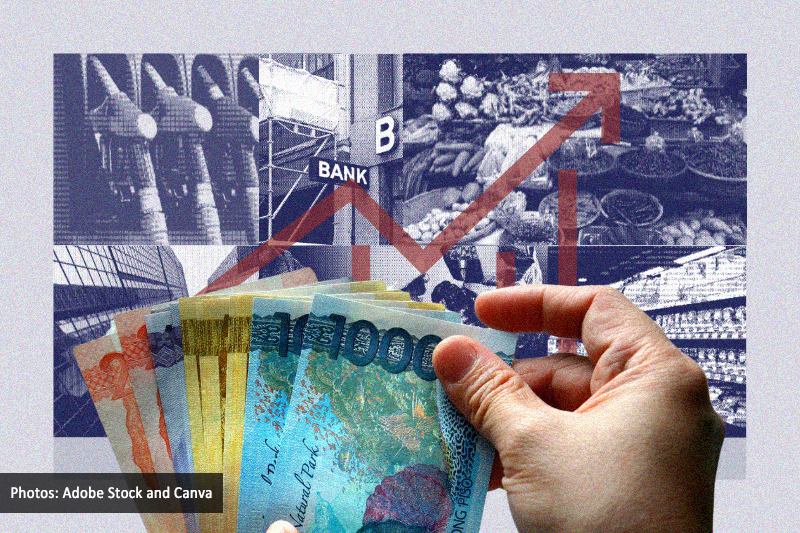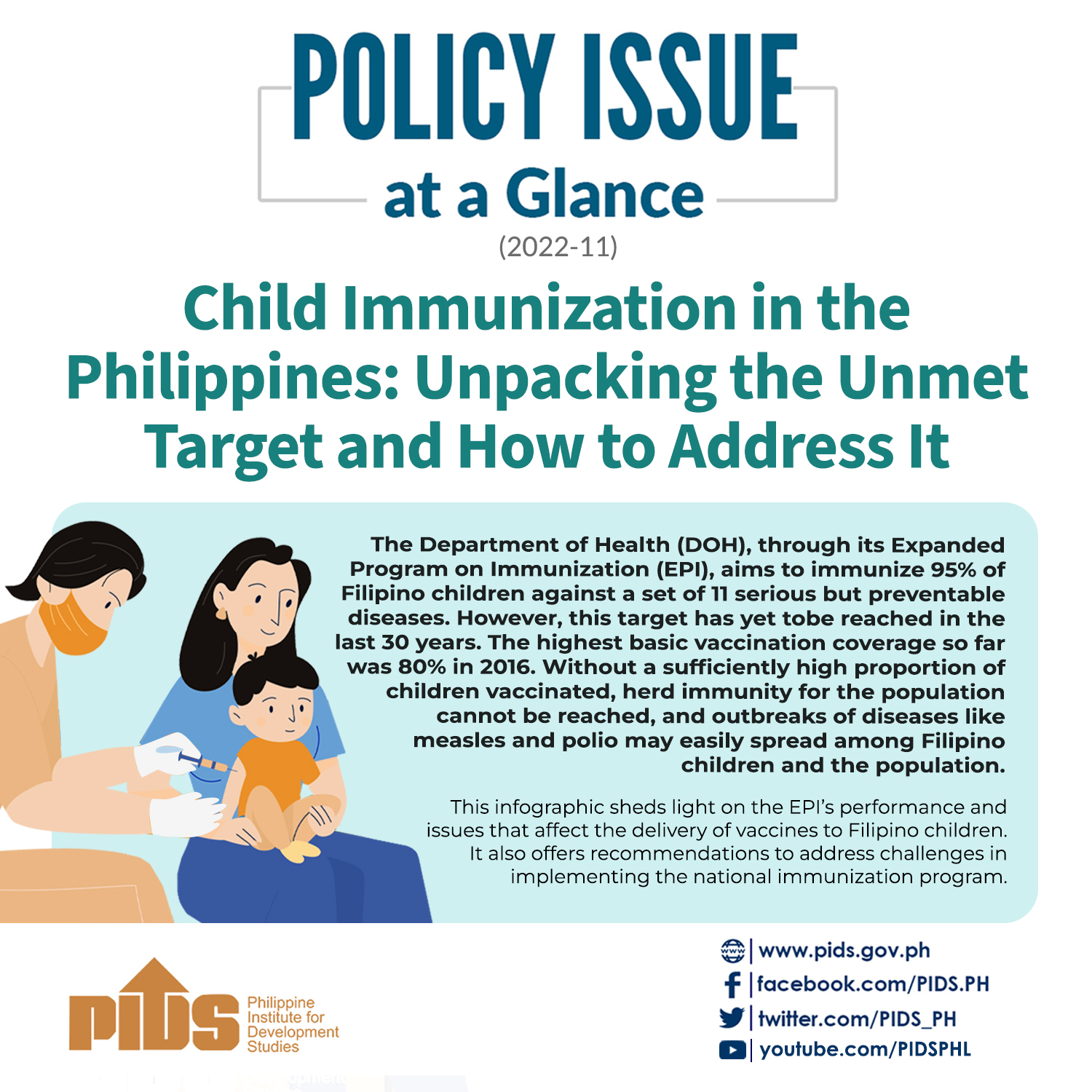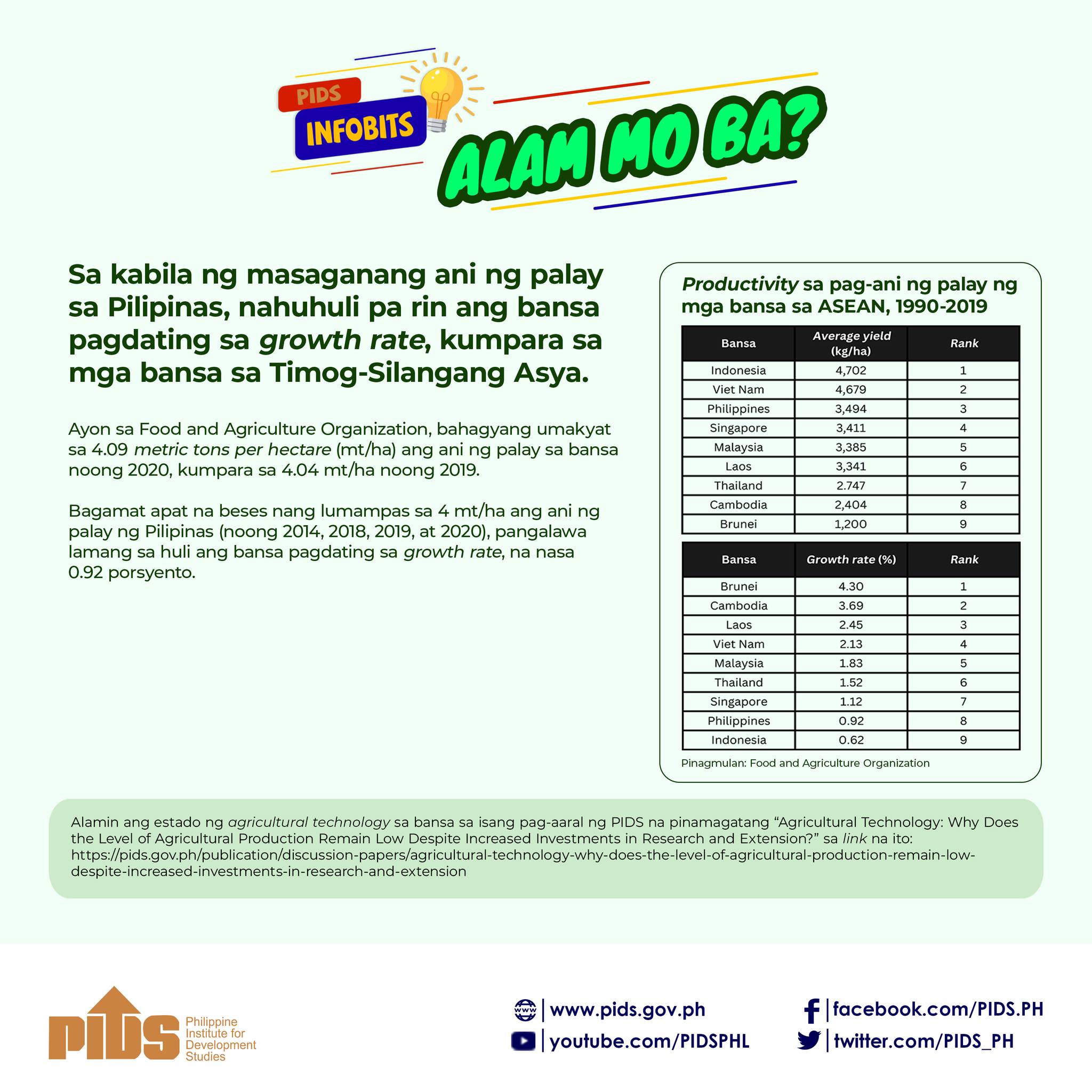State-run socioeconomic policy think tank Philippine Institute for Development Studies recommends a balanced approach to manage the Philippine economy and stimulate new growth while addressing the impact of the pandemic amidst the slowdown of major economies.
According to the PIDS study titled “Macroeconomic Prospects of the Philippines in 2022-2023: Steering through Global Headwinds,” the Philippine economy is forecasted to grow from 4.5 to 5.5 percent this year, lower than the 7.6-percent growth in 2022 due to decreased market demand, high inflation, risk aversion, and constrained policy space.
“High inflation tends to worsen poverty and income distribution. Taming rapid inflation is notoriously difficult and may be extremely costly,” PIDS Senior Research Fellow Margarita Debuque-Gonzales, Supervising Research Specialist John Paul Corpus and Research Analyst Ramona Maria Miral said.
“(Expanding supply) would be through investments in better education and digital infrastructure. (Removing supply constraints) includes easing import restrictions for agriculture products that may face shortages. Such reforms should be implemented immediately,” they added.
Implementation of structural reforms
To address the issue of high inflation, the study authors suggested implementing structural reforms to expand supply, easing import restrictions for agriculture products, and investing in better education and digital infrastructure.
The authors also recommend continuing policy momentum on investments, addressing inadequate infrastructure, expensive power, slow internet connectivity, regulatory inconsistencies, and concerns about government corruption.
Stabilizing exchange rate fluctuations to boost business confidence and prevent a negative impact on the long-term growth of small open economies due to increased transaction costs is also urged by the study’s authors.
They also recommend maintaining a policy momentum on investments to enhance the competitiveness of the country.
“The government should continue to remove impediments to foreign direct investment by addressing the country’s inadequate infrastructure, expensive power, slow internet connectivity, regulatory inconsistencies, and concerns about government corruption,” the authors added.

